[vc_row][vc_column][vc_single_image image=”949″ img_size=”full” alignment=”center”][vc_custom_heading text=”“A Piece of My Mind”” font_container=”tag:h1|font_size:50px|text_align:center|color:%232633ef” google_fonts=”font_family:Bitter%3Aregular%2Citalic%2C700|font_style:700%20bold%20regular%3A700%3Anormal”][vc_custom_heading text=”January 2018 Newsletter” font_container=”tag:h1|font_size:30px|text_align:center|color:%232633ef” google_fonts=”font_family:Bitter%3Aregular%2Citalic%2C700|font_style:700%20bold%20regular%3A700%3Anormal”][/vc_column][/vc_row][vc_row][vc_column width=”2/3″][vc_column_text]
Advancing Christian Faith and Values,
Defending Religious Liberty for All,
Supporting Civility and the Common Good
through Preaching, Teaching, Writing, Activism and Reasoned Conversations
www.donaldshoemakerministries.com[/vc_column_text][/vc_column][vc_column width=”1/3″][vc_single_image image=”687″ img_size=”full” alignment=”center”][/vc_column][/vc_row][vc_row][vc_column][vc_column_text]
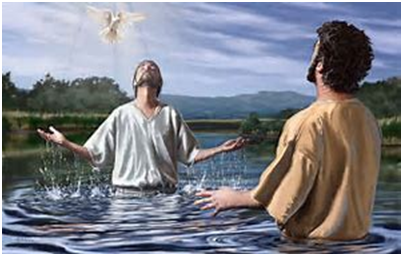 The Meaning of “Epiphany Sunday”
The Meaning of “Epiphany Sunday”
“Epiphany Sunday” is observed on January 7. It remembers the arrival of the “Magi” in Bethlehem (Matthew 2:1-12).
For many Christians it also recalls the baptism of Jesus (Matthew 3:13-17).[/vc_column_text][/vc_column][/vc_row][vc_row][vc_column][vc_column_text]
Bible Insight – “Epiphany Sunday”
Then Jesus came from Galilee to the Jordan to be baptized by John. But John tried to deter him, saying, “I need to be baptized by you, and do you come to me?”
Jesus replied, “Let it be so now; it is proper for us to do this to fulfill all righteousness.” Then John consented.
As soon as Jesus was baptized, he went up out of the water. At that moment heaven was opened, and he saw the Spirit of God descending like a dove and alighting on him. And a voice from heaven said, “This is my Son, whom I love; with him I am well pleased.”
– Matthew 3:13-17 New International Version
Sometimes we may say, “I had an epiphany!” We mean we had a moment when a great thought came to mind (like when Mike Lindell woke up with his “My Pillow” idea!). The greatest “Epiphany” of all is when God was revealed to the world in Jesus. This uniquely (but not exclusively) was at Jesus’ baptism.
What does the baptism of Jesus say to us? (With each point say, “I should too!”)
1. Jesus chose to identify himself with sinners.
He needed no “baptism unto repentance” that others there were receiving for he was the sinless one. Yet his life was characterized by identification with sinners rather than with self-styled righteous people.
Jesus so befriended sinners that he scandalized the “separated spiritual ones.” They were amazed he would eat in company with “sinners” (Mark 2:15-17). “The Son of Man came eating and drinking, and they say, ‘Here is a glutton and a drunkard, a friend of tax collectors and sinners’” (Matthew 11:19).
2. Jesus came to live in obedience to the will of God.
This reason is problematic. The Law of Moses was the source for people to learn the will of God and “live righteously.” But there is no commandment for baptism in the Law of Moses. So what did Jesus mean when he said he was entering the waters of baptism “to fulfill all righteousness”?
The answer may be for us to see Jesus’ baptism as the launching of his Messianic ministry. In baptism, Jesus “stepped up to the plate” in obedience to his Father’s will and formally began his ministry. Our obedience comes from following Jesus from baptism into a life of service and sacrifice as God wills.
3. Jesus received the empowering presence of the Holy Spirit.
This is seen in the descent upon Jesus of the Holy Spirit in the form of a dove.
Following his baptism Jesus faced one of his greatest spiritual crises—temptation by the Devil. Does this caution us, lest we think of baptism as more of an exhilarating experience rather than a doorway into all the challenges of following Jesus?
The Spirit of God led Jesus into the wilderness to undergo this temptation (Matthew 4:1-11). Among its many lessons: the Spirit of God will strengthen us through spiritual challenges, but he will not lead us to where our faith is broken. Our prayer is, “Lead us not into temptation but deliver us from evil.”
Jesus’ victory over temptation is especially important for us. “Because he himself suffered when he was tempted, he is able to help those who are being tempted” (Hebrews 2:18).
4. Jesus received honor from his Heavenly Father.
The “voice from heaven” declared him to be his beloved, special son—his “only begotten” son in the sense of Jesus’ unique relationship to his Father, from whom he came into our world. The Father’s voice also expressed his pleasure in his son’s obedience.
Christian baptism is a joyous event. But we must never forget it is also our commitment to take up our crosses and follow Jesus through obedience and suffering—whatever his will for us will require.
Now is the hour of the cross. In God’s timing the hour of glory and vindication will surely come. Now is not the hour when we seek honor from mankind. It is our time to do what we must to secure honor from God in Heaven through walking in obedience following the example of his son.[/vc_column_text][/vc_column][/vc_row][vc_row][vc_column][vc_column_text]
Message for the New Year –
“Back to the Three ‘R’s’”
The New Year evokes three key words: Reformation, Renewal, Revival.
Reformation – Have we examined our belief system as to how biblical it really is? “Statements of Faith” need periodic revision—they are not inspired scripture. How well do we communicate our beliefs?
My denomination, now known as the “Charis [Grace] Fellowship” *,
adopted a new 4-level statement of “who we are” in 2017. At the “CORE” is the simple confession “Jesus is Lord!” Outstanding!
This is followed by points identifying us with the larger Evangelical community (lest we think too exclusively about ourselves). Then, it lists points that specifically mark the Charis Fellowship. Finally, statements that address our convictions about our nation’s social issues will be developed.
This is Reformation at work! Ecclesia semper reformanda—the church always reforming.
* Legal name of the Charis Fellowship is “The Fellowship of Grace Brethren Churches”
Renewal – Is “how we’re doing things” really the best and most effective? When is the last time we’ve reviewed our church’s documents and policies? Have we become ingrown? How renewed are our worship services?
My own church, Grace Community Church in Seal Beach, California, made FACILITY RENEWAL a key accomplishment in 2017.
Now we know (or should know) that church facilities are not the core and essence of a church. You don’t even need to own a facility to be a church. But if we have a church edifice (or just borrow a community hall on Sundays) how it looks speaks volumes to our community about who we are. One church in my denomination had a big letter missing from its church name that faced a busy street—“Hello? Is anyone awake inside there?”[/vc_column_text][vc_row_inner][vc_column_inner][vc_column_text]
Grace Community Church before Facility Renewal
two buildings from the 40’s and 70’s):
[/vc_column_text][/vc_column_inner][/vc_row_inner][vc_row_inner][vc_column_inner width=”1/2″][vc_column_text] [/vc_column_text][/vc_column_inner][vc_column_inner width=”1/2″][vc_column_text]
[/vc_column_text][/vc_column_inner][vc_column_inner width=”1/2″][vc_column_text]

[/vc_column_text][/vc_column_inner][/vc_row_inner][vc_row_inner][vc_column_inner][vc_column_text]
Grace Community Church after Facility Renewal (2017):
[/vc_column_text][/vc_column_inner][/vc_row_inner][vc_row_inner][vc_column_inner width=”1/2″][vc_column_text]
I have lost track of how many people from the community have spoken positively of our “new look”, which is a great asset to Seal Beach and speaks well of our church and its mission.[/vc_column_text][/vc_column_inner][vc_column_inner width=”1/2″][vc_column_text]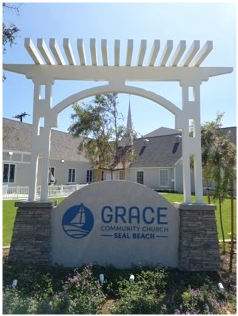 [/vc_column_text][/vc_column_inner][/vc_row_inner][/vc_column][/vc_row][vc_row][vc_column][vc_column_text]Revival – Are our hearts aflame for God and zealous for his will?
[/vc_column_text][/vc_column_inner][/vc_row_inner][/vc_column][/vc_row][vc_row][vc_column][vc_column_text]Revival – Are our hearts aflame for God and zealous for his will?
This one you can’t program! But we can pray for revival and align our lives accordingly (obedience and worship). Revival ultimately is both an effort of the people and a sovereign visitation of God. I’ve seen a couple of remarkable revivals in my lifetime. Do it again, Lord! With me or without me, but do it again![/vc_column_text][/vc_column][/vc_row][vc_row][vc_column][vc_column_text]
Religious Liberty Vigilance – Jefferson’s Wall
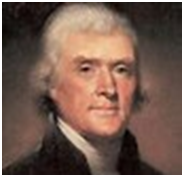 “I contemplate with sovereign reverence that act of the whole American people which declared that their legislature should ‘make no law respecting an establishment of religion, or prohibiting the free exercise thereof,’ thus building a wall of separation between Church & State.” – Thomas Jefferson’s letter to
“I contemplate with sovereign reverence that act of the whole American people which declared that their legislature should ‘make no law respecting an establishment of religion, or prohibiting the free exercise thereof,’ thus building a wall of separation between Church & State.” – Thomas Jefferson’s letter to
the Danbury Baptists (1802)
Two comments in recent news show why Jefferson’s words still need to shine. Rather than emulating the two gentlemen below, how about letting political figures stick with politics and letting ministers of the Word of God stick with the Word of God (not that there is no “intersect” between the two—the Word of God addresses the state, and the state must safeguard religious liberty).[/vc_column_text][/vc_column][/vc_row][vc_row][vc_column][vc_column_text]
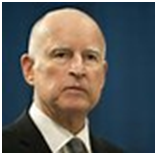 From “Moral Theologian” Gov. Jerry Brown –
From “Moral Theologian” Gov. Jerry Brown –
“I don’t think President Trump has a fear of the Lord, the fear of the wrath of God, which leads one to more humility.”
[/vc_column_text][/vc_column][/vc_row][vc_row][vc_column][vc_column_text]
 From “Religious Liberty Expert”
From “Religious Liberty Expert”
Steve Bannon –
“And by the way, Mitt [Romney], while we’re on the subject of Vietnam, and honor and integrity, you avoided service, brother, right? …you hid behind your religion. You went to France to be a missionary * while guys were dying in rice paddies in Vietnam. Do not talk to me about honor and integrity!” [ * Response: It was Romney’s religious right to do what he did! Italics mine.][/vc_column_text][/vc_column][/vc_row][vc_row][vc_column width=”2/3″][vc_column_text]
Recommended Reading
Well Worth Your Time
(Some productive reading I did in 2017)
The Life I Chose—The Streets Lied to Me
by Ameer Baraka (self-published, 2015)[/vc_column_text][/vc_column][vc_column width=”1/3″][vc_column_text] [/vc_column_text][/vc_column][/vc_row][vc_row][vc_column][vc_column_text]
[/vc_column_text][/vc_column][/vc_row][vc_row][vc_column][vc_column_text] Not for the faint of heart. Baraka grew up in the “projects” (as he often calls them) and in this book he withholds no language that he would have used there. Three thoughts from his “journey” stand out: (1) how important good fathers are (in other words, how bad it is to grow up in the “projects” without fathers);
Not for the faint of heart. Baraka grew up in the “projects” (as he often calls them) and in this book he withholds no language that he would have used there. Three thoughts from his “journey” stand out: (1) how important good fathers are (in other words, how bad it is to grow up in the “projects” without fathers);
(2) how important good education is (he got his education while in prison and learned to use words he had never used before—words like “moreover” and “therefore”, which require sequential thinking); (3) the difference it made when he turned his life over to God. I enjoyed communicating with him.
Martin Luther by Eric Metaxas (Viking, 2017)
Protestants—The Faith That Made the Modern World by Alec Ryrie
(Viking, 2017)
Excellent! Protestantism during the Reformation, in the modern age, and globally.
Bearing False Witness—Debunking Centuries of Anti-Catholic History
by Rodney Stark (Templeton Press, 2016)
Strangers in a Strange Land—Living the Catholic Faith in a Post-Christian World by Archbishop Charles J. Chaput (Holt, 2017)
Everything he says is applicable to Protestant Evangelical Christians.
Rediscovering the Holy Spirit by Michael Horton (Zondervan, 2017)
Sometimes tedious, always needed and profitable Reformed teaching.
The American Miracle—Divine Providence in the Rise of the Republic
by Michael Medved (Crown Forum, 2016)
The End and the Beginning, Pope John Paul II—The Victory of Freedom,
the Last Years, the Legacy by George Weigel (Image Books, 2010)
Karol Wojtyla, who would become John Paul II, was appointed Archbishop of Krakow in 1963. The communist government could veto any nominee, and Zenon Kliszko of the Polish Communist Party vetoed every name until Wojtyla’s name came up. Kliszko thought Wojtyla was a man who could be manipulated!
These years under communism saw constant communist efforts to infiltrate the church and interrupt its influence any way it could. The Polish secret police kept careful files on clerics like Wojtyla. They bugged his apartment and spied on his friends.
One incident was when a Polish secret service member planted some false information in Wojtyla’s residence. Upon driving off, this person was stopped by Polish police for drunk driving. In his drunken state he spilled his recent deed to the police, who promptly tipped off Catholic leaders to the false information.
In 1978 Wojtyla was elected pope. “The election of John Paul II, the more astute communist leaders recognized, posed a mortal threat to the post-Yalta European order and perhaps even to the Soviet Union itself.”
Roman Catholic Theology & Practice—An Evangelical Assessment
by Gregg R. Allison (Crossway, 2014)
Allison knows well what he speaks about—a Baptist theologian who once served with Campus Crusade for Christ at the U. of Notre Dame.
7 Women and the Secret of Their Greatness by Eric Metaxas
(Thomas Nelson, 2015)
Among them: Joan of Arc, Corrie ten Boom, Rosa Parks and Mother Teresa.
Countdown to Pearl Harbor—The Twelve Days to the Attack
by Steve Twomey (Simon & Schuster, 2016)[/vc_column_text][/vc_column][/vc_row][vc_row][vc_column][vc_column_text]
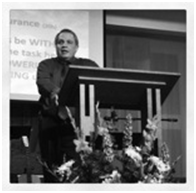 Don’s Recent Sermons
Don’s Recent Sermons
Listen to Don’s sermons delivered at Grace Community Church. Go to: www.gracesealbeach.org/sunday/sermons
Then go to the appropriate date.
October 29 – “Reformation Reminder—The Freedom of the Christian”
July 30 – “Leaders Training Leaders” (The ministry of Priscilla and Aquila with Apollos, Acts 18:24-28)
June 4 – “The Day of Pentecost—Come Holy Spirit” (Acts 2:1-42)
“Lessons from the Reformation” commemorating the 500th Anniversary of the Protestant Reformation (1517-2017):
#1 (June) – “What is God’s will when God doesn’t give us his will?”
#2 (July-August) – “The Freedom of the Christian” (Luther’s teaching)
#3 (October) – “Sola Scriptura” (the Bible alone is the final authority in all matters of faith and doctrine)
#4 (November)– “Martin Luther Posts the ’95 Theses’”
#5 (also November) – “Reformation Thanksgiving” (Martin Rinkart’s “Now Thank We All Our God”)
#6 (December) – “The Singing Reformation” (Martin Luther, Charles Wesley and Isaac Watts brought congregational singing to life)
All can be read at: www.donaldshoemakerministries.com/blog/newsletters
One or two additional “Lessons” may appear soon.[/vc_column_text][/vc_column][/vc_row][vc_row][vc_column][vc_column_text]
My Website: www.donaldshoemakerministries.com
Contact me at: donaldshoemakerministries@verizon.net</>
[/vc_column_text][/vc_column][/vc_row]

